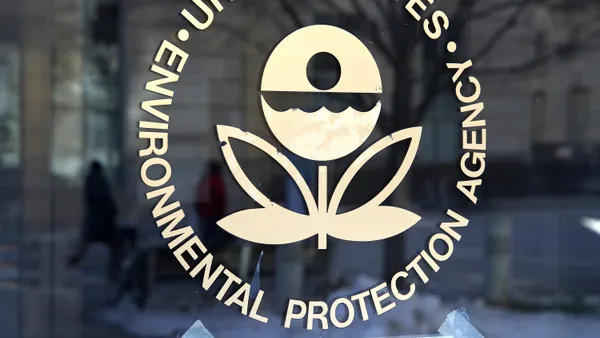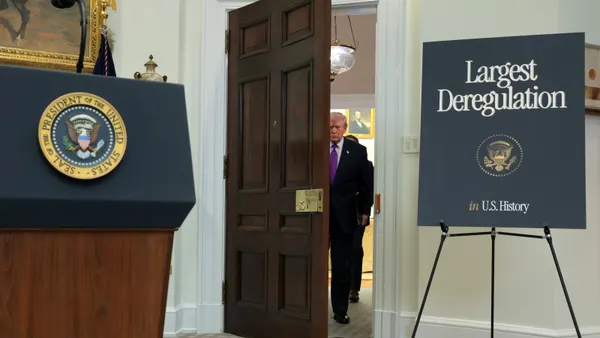Dive Brief:
- The regulatory landscape for corporate sustainability requirements has shifted dramatically over the past year, leading to regional fragmentation both within the U.S. and across the global landscape, experts said at a Journal House UNGA panel Thursday aligned with New York City’s Climate Week.
- “We've been through an era for some time where there was slow but steady convergence around expectations in different parts of the world, and that has basically ground to a halt,” Business for Social Responsibility CEO and President Aron Cramer said. “We're seeing a ton of regional fragmentation.”
- While the U.S. has reversed course at the federal level regarding corporate climate-risk reporting guidelines, California maintains state laws set to require disclosures in 2026. Beyond the nation’s borders, the European Union is working to simplify its laws, while Cramer said Asia “is basically staying the course.”
Dive Insight:
NEW YORK — Since President Donald Trump’s return to office in January, the Securities and Exchange Commission has ceased defending its climate-risk disclosure rule in court, and a variety of federal financial regulators have dropped guidance on climate-risk and reputational risks. That has occurred at the same time as EU legislators have paused reporting for the next wave of companies to comply with its Corporate Sustainability Reporting Directive and first wave of Corporate Sustainability Due Diligence Directive reporting companies, as they work to reduce the laws’ administrative burdens on companies.
“I've never seen the pendulum swing so far and so fast as I have in the last year. Companies hate uncertainty,” Boston Consulting Group Director and Partner Tim Mohin said on the Sept. 25 panel. “Business doesn't really know where to land on all of this, and every day there's a new headline.”
Mohin said some of BCG’s clients have resorted to creating situation planning “war rooms” to monitor, anticipate and forecast developments, with some utilizing artificial intelligence to aid the work.
Cramer said the reversal of policy convergence that many companies were relying upon has dissipated, making it “more challenging for companies to answer that question of what is expected.”
Mohin said that BCG clients are utilizing “radical pragmatism” when it comes to navigating their sustainability goals, after a period in the early 2020s where companies were trying “to reach for the stars.” Now, they are working to understand what parts of those goals and sustainability programs are value creators and drivers for the company.
“At this point, companies have decided that perhaps setting ambitious goals without any idea of how they were going to meet them was perhaps not the best idea,” Mohin said. “Now we're sort of in this mode of saying, ‘Well, what does that all mean?’”
Cramer said a fellow Climate Week attendee suggested companies are focusing on the “wrong ROI” and suggested that instead, there should be more focus on the “risk of inaction.”
Cramer pointed to the scenario process established by the Task Force for Climate-related Financial Disclosures as a “powerful tool” to aid companies in understanding climate risks. He said that in this era of backlash, it is important for companies to “lift [their] heads up” and focus on fundamentals like energy, facility and water access needs.
“While it's malpractice to ignore all the changes — all the turbulence, all the regulatory change that's happening right now — equally, I think it is malpractice to only focus on that,” Cramer said.













